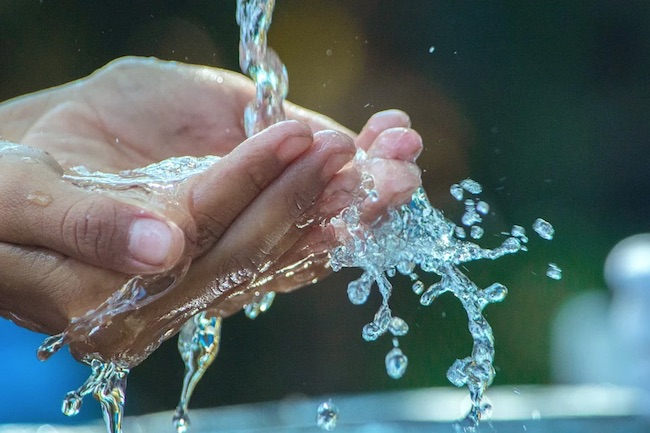Scientists: Handwashing gets rid of more germs than using hand sanitizers By Michael Alexander for Prevention
Sanitizers and disinfectants may be convenient and easy to bring around, but they are not as effective as scrubbing your hands with soap and water.
This is according to Roland Newman II, a family medicine physician at Penn State Health, who, in a statement, noted that traditional hand washing trumps sanitizers when it comes to keeping your hands clean.
“What the soap does as you are scrubbing is release all the dirt and germ particles from the surface of the skin,” Newman said, adding that any gunk or dirt on your hands will then get bound up in the soap lather which will then get washed away.
Soap and water are still best
For best results, Newman said, you must rub your hands vigorously with soap under running water for about 20 seconds – the same amount of time it would take you to sing the entirety of “Happy Birthday” twice.
Another reason as to why people shouldn’t put their trust solely on sanitizers, Newman said, is the fact that they aren’t particularly effective against certain pathogens. Examples of such pathogens include the norovirus, which can cause vomiting and diarrhea; Cryptosporidium, a parasite that can cause breathing and gastrointestinal issues and Clostridium difficile, a bacteria that can cause intestinal upset and inflammation. (Related: To prevent the spread of coronavirus in your community, it’s important to maintain proper survival hygiene.)
In addition, sanitizers aren’t effective against some chemicals such as pesticides and heavy metals, unlike soap and water.
“Washing appropriately with soap and water can actually rid your hands of more germs and – depending on what you are coming in contact with – some chemicals,” Newman stated,
According to microbiologist Alex Berezow, this is because hand sanitizer, while an effective disinfectant, does not actually remove germs from the skin.
“Soap is a detergent, which is why it gets all sudsy and bubbly. Detergents work by dissolving both water and oil, so it simply washes the microbes off your hands like it would wash the grease off a dinner plate,” Berezow, the Vice President of Scientific Communications at the American Council on Science and Health, said in an interview with Insider.
Newman stated, however, that sanitizers still have their place, noting that the concoctions – when used correctly and in the case of children, under adult supervision – are especially handy in situations where it is just not possible to wash your hands under running water.
Effective handwashing tips
Here are some tips on how you can effectively clean your hands using just soap and water:
- Wet your hands by holding them under the tap for a few seconds
- Rub the soap all over your palms and the back of your hands. Work the soap to get a good lather.
- Rub the palm of one hand over the back of the other, making sure to run the fingers through each other at the same time. Repeat this step for the other hand.
- Take the fingers of one hand in the palm of the other and rub in a circular motion. Do this for both your hands.
- Rinse both hands with water.
- Dry your hands preferably with a paper towel. Use the same towel to turn the tap off.
How often should you wash your hands?
Regularly washing your hands is incredibly important, more so during the following instances:
- After using the toilet
- Before touching or eating food
- When they are dirty
- After prolonged use of objects known to harbor bacteria, such as cell phones, handrails on public transportation, money and doorknobs
Hand washing is just one aspect of proper personal hygiene that people have to follow in order to guard themselves and their families against infections and diseases as well as keep their bodies in optimal condition.




